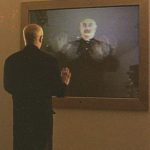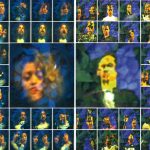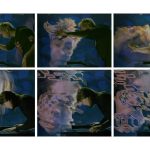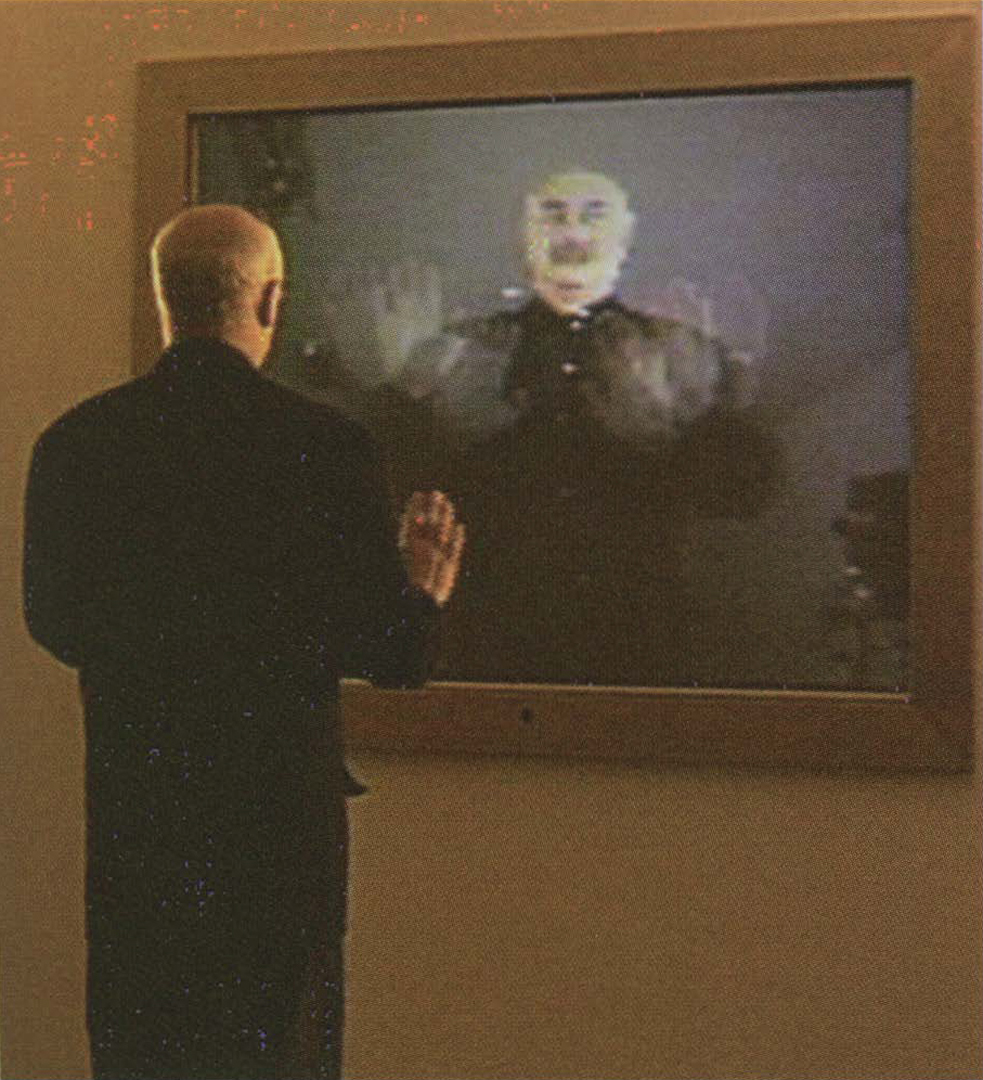Monika Fleischmann, Wolfgang Strauss, Christian A. Bohn: Liquid Views – Rigid Waves
Artist(s):
Title:
- Liquid Views - Rigid Waves
Exhibition:
Creation Year:
- 1993/1997
Medium:
- Interactive Installation
Category:
Artist Statement:
Liquid Views and Rigid Waves tells the story of Narcissus in simulated environments with a combination of computer, video, and sensory interfaces. Its main purpose is to make visible the communication between the individual person and virtual selves. Touch and movement serve as interfaces into a spatial experience.
Liquid Views
Narcissism in the mirror of society deals with self-reflection and self-knowledge. In the virtual mirror, viewers are confronted with their images as reflected in the water of the spring and representations of themselves. As they allow themselves to be seduced and interact with their images on the water mirror, the images disintegrate and are transformed into a simulation until they finally merge into the algorithmic hybridism of the water. Liquid Views is understood, in turn, as a metaphor for the act of being “online;” that is to say, in our “second nature” as “navigators” immersed in the telecommunication world. Over the “high seas” of cyberspace, the identity of each individual is transformed into a flow of variable and interchangeable data, in which viewers are completely free to change or redefine their identities, and all they have to do is alter their own sources of information.
Rigid Waves
Rigid Waves transforms the acoustic mirroring of Narcissus and Echo into a visual form. As observers approach a mirror, they are confronted with a mirror image that does not correspond to their normal perception of things. They see themselves as impressions, as bodies with strangely displaced movement sequences and, ultimately, as images in the mirror that smash as soon as they come too close. They are unable to grasp themselves. This is an attempt to see oneself from the outside, to stand side-by-side with oneself and to discover other, “hidden selves.” In this fractured mirror, we find ourselves shattered and splintered. Our selves are liberated and broken down into multiple selves. The presence of space in coordinating one’s own interaction plays a key role in this work. It explores dynamic gestures of different cultures and gender in order to study the concept of inter-faction for global communication.
All Works by the Artist(s) in This Archive:
- Monika Fleischmann
-

Liquid Views - Rigid Waves
[SIGGRAPH 1998] -

Liquid Views - Digital Mirror of Narciss...
[SIGGRAPH 1993] -

Liquid Views - Echoes of Self (2025)
[SIGGRAPH 2025] - Wolfgang Strauss
-

Liquid Views - Rigid Waves
[SIGGRAPH 1998] -

Liquid Views - Digital Mirror of Narciss...
[SIGGRAPH 1993] -

Liquid Views - Echoes of Self (2025)
[SIGGRAPH 2025] - Christian A. Bohn





